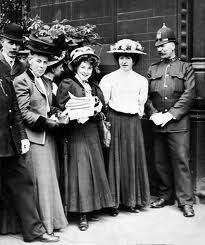Graham Storrs's Blog, page 7
February 5, 2014
What kind of idiots respond to spam?
In an idle moment, I took a look today at what this blog’s spam filter had caught. Today, there were 81 spam comments and all of them were so obviously spam, that I can’t help wondering why anybody ever clicks the links on them. And, let’s face it, the only reason spam exists at all is that people click the links and then buy stuff. To get a feel for how ridiculously obvious this comment spam was, here are a few quotes from it.
“This post provides clear idea in favor of the new visitors of blogging, that genuinely how to do running a blog.”
“I am gonna watch out for brussels. I will be grateful if you proceed this in future.”
“With havin so much content and articles do you ever run into any issues of plagorism”
“I care for such info much. I was looking for this certain information for a long time.”
“I liked as much as you’ll obtain performed right here.”
“It’s great that you are getting ideas from this piece of writing as well as from our dialogue made at this place.”
And there’s plenty more where that came from. Mostly it was of the type that aims to make a brief, flattering comment, then leaves a link. But it’s all rather let down by the completely generic nature of the content and the awful English, which frequently disintegrates into complete gibberish.
Now, is there anybody in their right mind who, upon reading such drivel, would think, “Hmm, interesting comment. I must click their link and find out more about this insightful person.”? Especially when the links quite blatantly point to knock-off fashion outlets (Nike and Calvin Klein being the most popular), dodgy financial services sites, gambling sites, Christian sites, pharmaceutical sites, and others that you’d never visit in a million years. There was also one link to Storify (worrying) and, my favourite, to a site offering car audio sex. (Car audio sex? Is that a thing now?)
Now I know that intelligence is normally distributed and for every person with an IQ over 120, there is someone with an IQ under 80, but, come on! Yes, I know they’re allowed to vote (for which Tony Abbott must be sincerely grateful), but surely, surely we can do something about complete and utter morons responding to spam that even my pet Airedale could spot as a con?
Or is it that people genuinely want dodgy financial services, dodgy pharmaceuticals, bitcoin casinos and car audio sex?

Pssst! Wanna ride?
February 4, 2014
A Home in Cyberspace
I’ve always wanted to be part of a group blog. I don’t know why, but I’ve always read posts in the group blogs I follow with a frisson of envy. Those writers, it seems, belong. They have friends and colleagues who want them. Those lucky people are part of a set. They are – almost by definition – the in crowd. And it sort of doesn’t matter what they say because, whatever they say is valued by their fellow group blog members. It adds a certain glamour to even the most mundane of posts. Their words glisten like a vampire in the noonday sun.
So you can imagine how I felt when my mate Meryl invited me to join her new group blog 42nd Parallel. Go on, imagine it – a grown man dancing around his office, the dog and cat running for cover, the shrieks of joy echoing from the granite escarpments all around him. It was pretty sad really. But not so sad as my acceptance email. (“Yeah, maybe. I’ll see if I can find time in my busy schedule. I’ll have my people call your people. OK?”)
Pathetic. But now I’m in. My first post has already appeared on the blog (beside that of the rather special Cassie Hart) and now Meryl can’t claim it was all a terrible administrative error and she meant to invite someone really clever and interesting. (Can she?) Now I’m going to rave about science fiction and rant about science and roar about writers I love and they can’t throw me out because, well, that would be mean, ’cause I always wanted to be on a group blog with glistening words and a cohort and all that.
So, please, join me on 42nd Parallel, subscribe to 42nd Parallel, and wallow in the musings of a group of SFF nuts who just want to create a space where being a half-crazed speculative fiction fan isn’t any reason to be excluded and ostracised.

The inaugural meeting of the 42nd Parallel team
January 30, 2014
My Latest Novel is Free on Amazon for a Short While
 My new sci-fi thriller, Heaven is a Place on Earth is currently FREE on Amazon. Be my guest and feed your Kindle. It will only be available free for a very short time, so nip along to your local Kindle store and grab it while this giveaway lasts.
My new sci-fi thriller, Heaven is a Place on Earth is currently FREE on Amazon. Be my guest and feed your Kindle. It will only be available free for a very short time, so nip along to your local Kindle store and grab it while this giveaway lasts.
Heaven is a tense thriller about a woman who finds herself being drawn ever more deeply into a world of deception and mystery, a near-future world where our reliance on augmented and virtual reality makes it easier than ever to become hopelessly lost in the lies.
The book normally retails at $5.50 so don’t miss out, and please pass the news on to everyone you know.
January 2, 2014
Heaven is a Place on Earth by Graham Storrs is now available
 I think the title says it all, but I’m so excited about this that I’m going to say more anyway.
I think the title says it all, but I’m so excited about this that I’m going to say more anyway.
First, let me tell you about the book. It’s about deception. It’s about a near future world where augmented reality and virtual reality technologies make deception easy, despite all the laws in place to guard against it. It’s about a woman for whom the lies begin to unravel. As the blurb says:
“Ginny had only dated the enigmatic Cal Coplin a couple of times when the police arrived to question her about him. He’s disappeared – something that should be completely impossible in the late 21st century when everyone is electronically tagged. When Ginny receives a recorded message from Cal, asking her to deliver a small package for him, her decision to help him plunges Ginny into a world of fear, corruption, and massive deception. On the run from the police, a dangerous terrorist organisation, and a shadowy corporation, Ginny struggles to stay alive and free while she tries to understand what is happening and prevent a deadly attack on the government. But in a world dominated by augmented and virtual realities, nothing is as it seems, and the deception runs deeper than anyone could imagine.”
Along the way, it’s about people deceiving themselves and colluding in their self-deceptions.
It’s a thriller too. I took my inspiration for the slowly unfolding revelation style of plot from thriller-writer Robert Goddard, whose skill in that style is second to none. There are great and terrible events going on, but our hero, Ginny, is bumbling about in the dark, barely glimpsing the nature of the forces that confront her.
I had enormous fun writing this novel. I hope you have as much fun reading it.
December 20, 2013
7 Things I Know About Women
 (This post first appeared on Steven Saus’s excellent Ideatrash blog.)
(This post first appeared on Steven Saus’s excellent Ideatrash blog.)
There’s been much discussion over the the years about men writing female characters, and women writing males. Some writers do it well, it seems, some don’t. A recent post on a publisher’s blog suggesting that some female characters these days were essentially male characters in drag – especially in high-adrenaline, action-packed thrillers where the female cop, or the female spy, or the female space cadet kicks ass, smart-mouths her superiors, and knocks back cheap scotch with the best of them.
Since this is the kind of fiction I write (only of a highly refined, intellectually stimulating, and deeply meaningful variety) it made me wonder about my own female characters. More than this, it made me wonder if you could ever say that a character of either gender was not representative of their sex.
I recall vividly a short story by Roger Zelazny which I read about forty years ago (Yes, I’m really, really old. Get over it.) in which the reader does not discover that the rough, tough spacer protagonist is actually a woman until the very last paragraph. It has had a profound effect on my writing, I believe, and I rarely, these days, mention the sex, ethnicity, or stature of a character unless it becomes useful to the story. I honestly believe that such “external” attributes of a person are irrelevant to who they are – but they may be relevant to how the other characters react to them.
So, let me list a few things I know about women to illustrate this notion.
1. Curves
 And here I’m talking about bell curves – normal distributions of human traits like height, weight, hair colour, intelligence, empathy, strength, psychopathy, courage, creativity, and so on. On all of these traits you will find that there is an average and that the great majority of people are clustered around it. As you move away from the average to higher or lower “amounts” of the trait, the chances of finding it in a random sample of people falls away sharply. If you plot the amount of the trait against the frequency of finding each amount in the population at large, you get a graph that starts off very low, rises quickly to peak at the average amount, and then falls away just as quickly as it rose. It makes a nice, neat bell-shaped curve.
And here I’m talking about bell curves – normal distributions of human traits like height, weight, hair colour, intelligence, empathy, strength, psychopathy, courage, creativity, and so on. On all of these traits you will find that there is an average and that the great majority of people are clustered around it. As you move away from the average to higher or lower “amounts” of the trait, the chances of finding it in a random sample of people falls away sharply. If you plot the amount of the trait against the frequency of finding each amount in the population at large, you get a graph that starts off very low, rises quickly to peak at the average amount, and then falls away just as quickly as it rose. It makes a nice, neat bell-shaped curve.
The interesting thing about men and women is that their averages on some of these traits are slightly different – like strength, height, shoe-size, and so on – and the averages on others are just the same – like intelligence, hair colour, etc.. But, and this is the really important point, if you draw the bell curve for men and the bell curve for women, even for traits where they have quite different averages, and lay one on top of the other, you will find that the curves overlap massively. There are plenty of women who are taller than the average man, plenty of men weaker than the average woman, plenty of men with more empathy than the average woman, and plenty of women heavier than the average male.
The point is that there are vastly more similarities between men and women than there are difference. Technically speaking, the variance in the two populations all but swamps the difference in averages. All things being equal, there should be plenty of hard-hitting, beer-swilling, foul-mouthed, tough-talking, borderline psychopath women. Not quite so many as there are men, perhaps, but enough that if you were to say Sam is that kind of person, it is mostly prejudice that makes you think the character is a Samuel rather than a Samantha.
2. The Eye of the Beholder
You have to remember that most of what you see of any person you meet is an act they’re putting on for your benefit – or somebody’s, anyway, even if it’s their own. Take that gorgeous creature who just walked into the cocktail bar in the tight red dress, she might well be thinking that her underwiring is chafing and those heels are murder on her feet. Maybe she’s on the prowl, you think, intimidating, a woman who uses her body as a bribe to get what she wants.But maybe, inside, she’s bitter and angry with herself, humiliated that she dressed up like that just because she heard that her ex-husband and his new girlfriend would be there that night and her idiot best-friend encouraged an impulse to make him regret leaving her. Maybe she flies light aircraft for a tourist company. Maybe she’s doing a PhD in reptile physiology. Maybe she has two kids at home with a sitter. Maybe her brother just died of cancer. Before you write that arrogant sneer onto her full lips, it’s worth pausing for a moment to consider that the life of every woman you meet is far more complicated than you imagined. It’s a tangle of family and friends, work and hobbies, childhood and adolescence. She’s got political opinions, religious views, she’s got emotional problems and blind spots, gaps in her knowledge, passions and obsessions, sexual hangups, irrational fears, and a limited supply of courage. Sitting at the bar in your best suit, you have to realise that that red dress tells you nothing at all.
And, as you stride across the room in your high heels, hoping to God you don’t fall off them and break your ankle, you need to realise that the guy in the suit watching you from the bar stool isn’t the simple middle-management drone on a business trip, off the leash and looking for action, that he seems to be.
3. Emotionality
It’s a well-documented scientific finding that men are generally more emotionally unstable than women. They start of that way as little boys. They cry more, they’re more easily  angered, their highs are higher, their lows are lower. But don’t forget those bell curves. This is just a small difference in averages. The most striking thing about the emotionality of men and women is how much overlap there is.
angered, their highs are higher, their lows are lower. But don’t forget those bell curves. This is just a small difference in averages. The most striking thing about the emotionality of men and women is how much overlap there is.
Even so, the relative emotional instability of men manifests itself in some strange ways. In a recent study, it was found that men are more likely to be the first in a couple to say, “I love you.” Men might like to think they’re stable, solid, dependable and reasonable, but the evidence is that, in the face of danger, they’re more likely to take stupid risks, or collapse under the strain, or both.
Of course, there are differences in the hormonal systems of men and women. Oestrogen can make a person more nurturing and compassionate. Testosterone can make a person more aggressive and take more risks. But the differences are not as dramatic as you might think and, again, the overlaps are considerable. There are plenty of men who make great nurses and plenty of women who can run major corporations.
4. Society
It’s great that there are so may stories about women running police departments, women heading up law firms, women astronauts, women scientists, women spies, but you have to remember that the real world isn’t much like that. In the real world, women are as rare as hens’ teeth in top jobs and, in some professions, even rarer than that. It was shocking to hear that when the Australian Academy of Science voted in its new fellows this year, there were thirty-seven nominees and all of them were men. Not one single female scientist was thought good enough to be elected to the country’s top professional body.
But it’s OK, I suppose, that, in the spirit of affirmative action, or just shifting the perceptions of young people reading books and watching telly, we should portray a world that doesn’t resemble the real one all that much. It doesn’t even matter, I suppose, that the female lawyer, the female cop, the female mining executive or gang boss, are all stunningly beautiful and dress like a teenage boy’s wet dream, because, these days, the same standard of physical beauty is increasingly applied to the male cop, the male lawyer, and the male mining executive or gang boss – as long as they’re the good guys. If they’re bad guys, the female still has to be smoking hot but the male can be as fat and ugly as you like.
In our real world, women do, very, very rarely, get to be heads of state. But, unlike men, they also have their clothing and their bodies endlessly discussed in the media. Their male colleagues snigger at sexist jokes about them behind their backs. The public – both men and women – frequently expresses a lack of confidence in them purely on the basis that they are female. She has to put up with all that crap on top of the normal pressures of running a country.
It’s the same for the cop, the lawyer, the mining exec. And the gang boss. Overt and covert pandemic sexism is probably the single biggest difference between men and women. Women suffer it, men don’t.
5. Sex
In the fictional bedroom, protagonists tend to be good at sex. They’re adventurous, skilful, considerate, enthusiastic, and yet tender. They’re also blatantly heterosexual. If it’s a man he’s ripped. If it’s a woman, she’s got breasts like melons. It probably all arises from a male fantasy that the heroic male is more than adequate in every way. Great male leaders are traditionally giants and well hung. That it has now rubbed off onto the female protagonist is probably just by analogy, rather than a strong cultural belief that heroic women are also sexual athletes. Indeed, until very recently (and it still happens a LOT) it was the female antagonist who revealed her moral degeneracy by exhibiting a healthy sexual appetite.
But the male stereotype has as little to do with reality as the new female equivalent. Think of all the real male heroes and leaders you know. Can you imagine they were or are exceptional lovers? What about Winston Churchill, or Rupert Murdoch? And, among the women, Margaret Thatcher? Julia Gillard? I’m not saying they aren’t terrific sex partners, just that it may not be a safe assumption based solely on their leadership skills.
And what about all that rampant heterosexuality? It’s estimated that as many as five per cent of men are practising homosexuals and that a tenth of one per cent are regular cross dressers (and that these are quite different groups). There is also a substantial number of men who are asexual – preferring not to have sex at all. The figures for women are less certain. It wasn’t all that long ago that female homosexuality wasn’t even acknowledged by many legal systems. My suspicion is that the numbers might tend to be quite similar over time if our society moves in the direction of more openness.
I don’t know what kind of books you read but I’m guessing fewer than one in a thousand have featured a cross-dressing male hero, and fewer than one in twenty a gay hero. Have you ever read a book in which the heroine is a female-to-male cross dresser? (Stories like Tootsie and Yentl don’t count. I’m talking about heroes whose strong gender preference is to present as the opposite of their biological sex.) When do you think we might elect such a woman as head of state?
6. Genius
 Differences that we do see between men and women are typically to do with differences in opportunity rather than innate differences. They are differences in achievement (which is regulated by society) rather than differences in ability (which is not – yet – but we live on the cusp of being able to choose such traits for our children). There is some evidence that there are more men with extreme IQs (both high and low) than women. This is thought to be because men are inherently a little more variable on most traits than are women (the set of bell curves for male characteristics are slightly wider and lower than the women’s, even when they have the same average value). However, it’s hard to be sure in the case of IQ since the tests are notoriously dodgy and they are validated against actual achievement or estimates of likely achievement, which are both culturally biassed in favour of men.
Differences that we do see between men and women are typically to do with differences in opportunity rather than innate differences. They are differences in achievement (which is regulated by society) rather than differences in ability (which is not – yet – but we live on the cusp of being able to choose such traits for our children). There is some evidence that there are more men with extreme IQs (both high and low) than women. This is thought to be because men are inherently a little more variable on most traits than are women (the set of bell curves for male characteristics are slightly wider and lower than the women’s, even when they have the same average value). However, it’s hard to be sure in the case of IQ since the tests are notoriously dodgy and they are validated against actual achievement or estimates of likely achievement, which are both culturally biassed in favour of men.
The usual argument (“Name me ten great women composers/artists/physicists/engineers/etc.”) is clearly a load of codswallop in a society that has always been biassed against female achievement (and still is, remember the Australian Academy of Sciences example above).
Evidence of differences in maths ability, spatial reasoning, language skills, “social IQ”, and so on are also based on more-or-less shaky evidence. While we live in a society that pushes so hard for boys to go one way and girls to go another, it is almost impossible to tell what is a truly innate difference and one which has been socially determined. My feeling is that we should err on the side of requiring very strong evidence before we attribute any individual difference in ability to sex rather than society.
7. Geeks and Jocks
And, finally, returning to the problem that set off on this exploration, we are seeing a great many new female stereotypes arising in popular fiction. The Geek Girl, the hard-as-nails, one-of-the-boys cop/spy/cowgirl/roustabout/you-name-it, the fiercely competitive lady lawyer/senior cop/senior spy/executive/newspaperwoman/etc., to name but a few. It would be fair to say that many of these characters are so like their male equivalents that the accusation that they’re men in drag would be hard to defend. Possibly to offset this, a fair number of them are single moms with a small child in the background somewhere (and many of these youngsters are preternaturally understanding and forgiving of their absentee parent – probably to assuage cultural bias against neglectful mothers).
More alarmingly, the female stereotypes that have emerged seem to fall into two main camps, mirroring the geeks and jocks categories into which so many male characters can be divided these days. Like male geeks and jocks, the attractive, competent, physically larger, self-assured women get to be jocks, while the unattractive (although often “cute”), socially inept, incompetent, smaller ones get to be geeks. What this phenomenon indicates is not that female geeks and jocks actually mirror their male counterparts – since, in the real world of actual males, it would be hard to make that distinction anyway – but that the writers who use these stereotypes are exhibiting an appalling failure of imagination and a shocking inability to observe and describe real women.
In Conclusion
It seems to me that a lot of the complaints about male writers writing female characters and female writers writing men are at least as much a reflection of the gender prejudices of the reader as of the writer’s lack of skill. I don’t deny that some writers struggle in this area and some simply write stereotypes. However, before criticising the writer, we might first make an inventory of our own attitudes to gender and ask ourselves how realistic are our own notions of what is masculine and what is feminine.
December 10, 2013
Aw c’mon, Brisbane’s a real swell place.
With just three weeks to go until the publication of my new novel, Heaven is a Place on Earth, the demons have begun whispering in my ear, telling me all the reasons people might find not to like it. Not that I need demons to remind me! You just have to scan a few Amazon reviews to find that lots of people have loads of reasons for hating everything anyone does. (There’s even one poor demented soul on Goodreads who has been through every book and short story I’ve ever published – even things that are out of print and only available second hand – and given them a 1-star “review” comprising the identical gibberish. But then, Goodreads is the badlands of the literary Web.)
telling me all the reasons people might find not to like it. Not that I need demons to remind me! You just have to scan a few Amazon reviews to find that lots of people have loads of reasons for hating everything anyone does. (There’s even one poor demented soul on Goodreads who has been through every book and short story I’ve ever published – even things that are out of print and only available second hand – and given them a 1-star “review” comprising the identical gibberish. But then, Goodreads is the badlands of the literary Web.)
What the demons have been whispering of late is that books not set in the US don’t sell well over there. This is probably an urban myth put around by anxious publishers whose sleep is spent in nightmares about eroding bottom lines, clutching desperately at any superstition that might bring them better luck. They tell it to writers, urging them to switch a book’s location from Stowe-in-the-Wolds, England to Deadhorse, Alaska, because, well, Americans don’t like to read about foreign places, do they? I’ve had this same advice myself, from a Big 5 publisher, who suggested I move the setting of one of my novels from Brisbane, Queensland to, say, San Francisco, California. I said no, I wouldn’t. I have more respect for American readers than that. Besides, I know of loads of great novels that sell well but aren’t set in the USA. They didn’t actually publish the book (not for that reason, I hope!) so we won’t know if they were right unless I self-publish it.
The thing is, Heaven is a Place on Earth, is also set in Brisbane. It doesn’t have to be set there, I suppose, although there is a bit of an On the Beach echo about the setting that I hope readers will notice. But why should I change it? Brisbane is a fine city of over two million people spread across one of the largest urban areas in the world (about ten times the area of San Francisco). It rubs up against beautiful Moreton Bay and the Coral Seal on one side, has the gentle Brisbane River running through it, and enjoys a gorgeous, sub-tropical climate. It’s a great place to set a story.
It’s a bit like the argument publishers use for “translating” books into “American”. I write in a dialect of English I learnt and spoke in the UK. It’s very, very similar to the one I speak here in Australia. About half the books I read are written in a dialect of English spoken and written in the US. Somehow I manage to cope with the fact that those writers say “sidewalk” when they mean “pavement” and “pavement” when they mean “road”, “purse” when they mean “handbag”, “Mom” when they mean “Mum”, and so on. It doesn’t need translating into Australian for me. In fact, I’d find it very weird if an American author’s work was presented to me in UK English. Yet many publishers insist – they write it into their contracts they insist so much – that they will only publish books in an American idiom, with American spelling. One publisher told me that Americans complain that their books are full of spelling mistakes if they find UK English spellings in them! The whole attitude is bizarre, and, I believe, denigrating to American readers.
As I see it, if you don’t want to hear other voices, why bother to read at all?
Needless to say, Heaven is a Place on Earth is written in Australian English, using Australian idioms. It even contains Australian slang – God knows what a Big 5 publisher would make of that!
Yet, despite all my self-justification, the demon whispers, “You’ll get 1-star Goodreads reviews saying ‘the guy shoulda used a spell checker,’” and “Once they see a picture of Brisbane on the cover, no American will want to buy it.” Stoopid demon. “Stoopid you,” the demon says. “You think those big-name publishers don’t know their market?”
Well, yes, I suppose that’s what I do think.
What do you think?
December 3, 2013
Cover Reveal: Marianne de Pierres’ new novel, Peacemaker
Guys, here’s the cover of Marianne de Pierres’ new SF Western, Peacemaker.
The cover art is by Joey Hi Fi, partly inspired by Marianne’s graphic novel of the same name which was illustrated by Brigitte Sutherland. More details about the book can be found on this page: http://www.mariannedepierres.com/books/marianne-de-pierres/peacemaker-series/
Any SF Western fans out there? Marianne is one of Australia’s biggest-name SF and paranormal writers – and she’s also had success as a crime writer too with her Tara Sharp novels. So mark you calendars. Peacemaker is due for release by Angry Robot books in early May 2014.
Cover Reveal: Marianne de Pierre’s new novel, Peacemaker
Guys, here’s the cover of Marianne de Pierre’s new SF Western, Peacemaker.
The cover art is by Joey Hi Fi, partly inspired by Marianne’s graphic novel of the same name which was illustrated by Brigitte Sutherland. More details about the book can be found on this page: http://www.mariannedepierres.com/books/marianne-de-pierres/peacemaker-series/
Any SF Western fans out there? Marianne is one of Australia’s biggest-name SF and paranormal writers – and she’s also had success as a crime writer too with her Tara Sharp novels. So mark you calendars. Peacemaker is due for release by Angry Robot books in early May 2014.
November 28, 2013
Petition Sites
 Ever signed an online petition? I have. In fact, I do it all the time. I think organisations like Avaaz are absolutely fantastic. Even the smaller, less focused organisations like Sumof.us and Care2 are very positive and empowering services, allowing people to add their voices to campaigns which are generally humanitarian and worthwhile.
Ever signed an online petition? I have. In fact, I do it all the time. I think organisations like Avaaz are absolutely fantastic. Even the smaller, less focused organisations like Sumof.us and Care2 are very positive and empowering services, allowing people to add their voices to campaigns which are generally humanitarian and worthwhile.
Sadly, though, they are not always a perfect fit to my ethical position. Normally, that isn’t a big deal. You can pick and choose which causes to support and, if you feel strongly enough that your views are not being represented, you can start your own petition. Sometimes, however, the petitions I am asked to sign are quite disturbing, primarily because the strident demands for action – usually punishments – are as ill-considered and brutal as the wrong they’re trying to address.
What brings this to mind is the case of “Dr. K.”. Dr. K. is a Melbourne GP who is strongly anti-abortion. He has recently been investigated for breaking the State’s abortion laws by not referring patients for abortions and for trying to talk women out of having abortions. He also seems to believe that women who die whilst trying to abort their foetuses deserve what they get. Given he is prone to quoting from the Christian’s Bible, I’m guessing that’s where his motivation comes from.
Now, I disagree very strongly with Dr. K.’s position and I do not believe it is right that he has broken the law and failed in his duty of care as a GP. However, when an email arrived today, asking me to sign a petition demanding to have Dr. K. struck off, my reaction was to cringe. It sounded like trying to silence dissenting opinion. It sounded like people who don’t agree with the petitioner should be demonised and trampled underfoot. It sounded like they were trying to get up a lynch mob.
Let me say, I have no idea whether Dr. K. is a good physician or not. It could be he is a great doctor and his only failure with respect to his patients is in this one area. (I actually doubt it, because with such strong religious convictions, he’s probably not doing well by other groups either – like gays, the transgendered, unmarried couples, and so on.) However, I have to say, I admire him for standing up for what he believes in. He believes that abortion is murder and he refuses to be complicit in it. I believe he is wrong, but I also believe he has the right to believe whatever he wants. And, if that is what he believes, then he should act in accordance with his beliefs.
So why don’t I think we should all be baying for his blood? Well, partly because the punishment is too black-and-white. Assuming that what one has read is correct, he has broken the law, he has badly let down his patients, and, with his weird beliefs, he is probably not a very nice person. Yet he is providing an invaluable service to his community in most respects. His behaviour towards people with cancer or broken legs is no doubt exemplary. It’s only in those areas where his religion-induced “morality” creates a conflict with his legal obligations that there is a problem.
Given that there must be hundreds, or thousands, of doctors who have strong views on various things that make them incapable of carrying out their duties as the law – and the wider society – would like them to, perhaps our system of accrediting doctors should be modified to take account of this reality.
It would certainly be nice to see a full disclosure statement on the door of every doctor’s surgery, saying things like, “Dr. X. is a practicing Moslem. She also believes that abortion is murder, that sex outside marriage is a sin and that gays should be stoned to death. She is therefore unable to conform to the law in the treatment of sex- or gender-related problems, treating, counselling, or referring patients for abortions, treating unmarried mothers, unmarried couples, or treating people who identify as GLBTQ.” Or something like that. Then people could choose which doctor to visit and, when a patient consults a partially-disqualified doctor in error, such a doctor could refer a patient to their full disclosure disbarments and say, “Sorry I’m not allowed to consult with you on that issue.”
Of course, if a doctor then treated someone they shouldn’t, or failed to make a full disclosure of their ethical or religious position, then you could strike them off, throw them in jail, or whatever you liked.
Without that kind of full disclosure and partial disbarment mechanism, then, sadly, the only thing the State of Victoria can do in the face of a recalcitrant doctor who will not do as the law requires is to prevent him from practicing, despite his otherwise admirable stand on his principles. Which is only fair. If it cost nothing to have principles, everyone would have them.
There are plenty of other petitions which touch on similarly complicated issues and most of them offer the most simplistic or banal solution – sack someone, boycott something, tell someone to do something, demand someone resign, and so on. In fact, the language of many of these petitions reminds me of student union meetings I used to attend back in the Seventies, where the resolution on whatever issue was being discussed typically began, “We demand that the Government…” It was all very silly and childish (even though the issues were often extremely serious) and gave me a lasting contempt for politics and politicians.
The biggest petition sites, like Avaaz, are generally more temperate and mix their ethical campaigning with a good deal of practical common sense and, indeed, politeness. But some of the others are, at least in tone and lack of subtlety, almost as bad as the groups they seek to censure. In no case that I’m aware of does a petition site allow its users to work together on the wording of petition, iterating towards a consensus view, or even to offer feedback. A site with an “I disagree with this position” button would be nice. They just blast out their mob justice style petitions and let them sink or swim. And that is a huge pity, since the basic idea of collecting the voices of thousands of ordinary people – sometimes a million or more – so that they can be heard by the people in power, is one of those wonderful notions that makes the Internet worth having.
November 26, 2013
Heaven Cover Reveal Redux
You know, self-publishing sucks in so many ways – mainly because you have to do all the boring bits yourself – but one of the ways it doesn’t suck is this: you get control over everything. Not that I’m a control freak or anything, it’s just that having control over everything absolutely beats the opposite hands down.
Take the cover for my upcoming novel, Heaven is a Place on Earth. A short while ago I did a big reveal of the cover I was going to use and asked for opinions. I not only got opinions, I also got advice, notably from fellow-writer Patty Jansen. Since I’m a Photoshop/GIMP ignoramus, hardly anything Patty said made sense. So we took it off-line and Patty, who also happens to be an artist (I know this because I’ve seen her stuff in exhibitions) rather than waste bandwidth trying to educate me, showed me what my cover could look like.
It was a real eye-opener. After just one tiny iteration, she’d produced something I thought was streets ahead of my original. In fact, I like it so much it now is the cover of my new book. And here it is!
Many people, when they saw the previous version, seemed to think the image was too “clean”. They wanted me to make it more “gritty”. As much as I’d have liked to oblige, I just didn’t understand what they meant – until I saw Patty’s version. If only they’d said, “Make it grungy,” I’d have understood! (Even if I still couldn’t achieve it.) Because it is, isn’t it? And grunge is just a perfect fit for the story. As well as the obvious changes, there are some subtleties that only an artistic mind might have come up with – like a tiny bit more cropping on the background that makes such a difference to the composition.
Patty tells me she is willing to take on some small cover design jobs if anyone is interested. She actually enjoys doing this stuff, whereas I tear my hair out and agonise over it and still suck. Takes all kinds, fortunately.
And while I’m on the subject of Heaven is a Place on Earth, I heard back today from an advanced reviewer who seemed to enjoy it. (He used the words “Wow!” “unputdownable” and “amazing”, so I’m taking that as a good sign.) Remember, release day is 3 Jan 2014.




